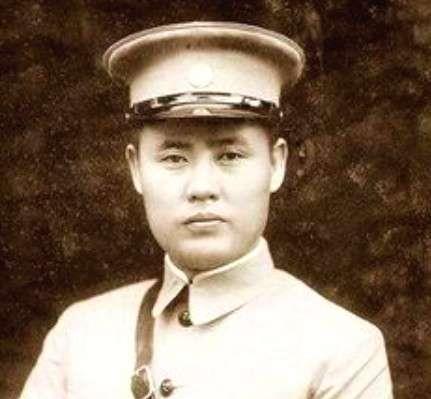At the beginning of the Pingjin Campaign, Fu Zuoyi was preparing for a decisive battle with our army, and at that time he still had 42 divisions and more than 500,000 people in his hands, of which 17 were in his consortial unit, and the remaining 25 divisions were the central army of lao Chiang. However, as the campaign progressed, the 35th Army, the 104th Army, and the 105th Army, on which Fu Zuoyi had started, were annihilated by our army, and the retreat route to Suiyuan was also cut off. At this time, Fu Zuoyi was caught in a dilemma. In the end, under the persuasion of his teacher Liu Houtong and his eldest daughter Fu Dongju, he decided to peacefully revolt. Little is known that during the Beiping Uprising, Fu Zuoyi released 7 senior generals of the Nationalist Army, so who were they? Why did Fu Zuoyi let them go? What is their final outcome?

At that time, the strength of the old Jiang Concubine's clan in Beiping City was several times higher than that of Fu Zuoyi, and if he hastily declared an uprising, not only would the probability of success be extremely low, but even his own safety might be a problem. In order to eliminate this hidden danger, Fu Zuoyi took control of Old Chiang's concubine generals in the name of convening a military conference and cut off their contact with his own troops. Fu Zuoyi then announced the decision to peacefully revolt. In order to reduce the resistance to the uprising, Fu Zuoyi released 7 senior nationalist generals who resolutely disagreed with the uprising and sent them back to Nanjing by plane. So who are these 7 people?
They were Yuan Pu, commander of the 16th Army, Li Wen, commander of the 4th Corps, Shi Jue, commander of the 9th Corps, and Shangguan Yunxiang, Wu Qiwei, Song Kentang, and Liu Duoquan, who were then the "deputy commanders-in-chief of the North China Suppression Army." Among them, Yuan Pu, Li Wen, and Shi Jue were all generals in the army, and they all had armies in their hands at that time; Shangguan Yunxiang, Wu Qiwei, Song Kentang, and Liu Duoquan did not have their own direct troops, but they all had a certain influence in the nationalist army. At that time, these 7 people were resolutely opposed to the peaceful uprising, and in order to reduce the resistance of the uprising, Fu Zuoyi finally sent them back to Nanjing by plane.
Of these 7 people, Yuan Pu, Li Wen, Shi Jue, Shangguan Yunxiang, and Song Kentang all went to Taiwan, while Wu Qiwei led an uprising in the Dongjiang region of Guangdong Province, serving as a member of the National Committee of the Chinese People's Political Consultative Conference and a member of the Guangdong Provincial People's Government after the founding of New China; Liu Duoquan later jointly electrified the uprising in Hong Kong, and after the founding of New China, he served as a counselor of the State Council and director of the Transportation Department of Liaoning Province. Among the 5 people who went to Taiwan, we focused on Shangguan Yunxiang, a native of Jinan, Shandong Province, who graduated from the Baoding Army Officer School, and was a classmate of Gu Zhutong and Ye Ting. In the early days, he followed Sun Chuanfang, and after the defeat of Sun Chuanfang's army, he defected to Lao Jiang.
Shangguan Yunxiang knew that he was not a concubine of Old Chiang, so he turned to Old Chiang Kai-shek and made great efforts, and performed well in the Jiang-Gui War, the Jiang-Tang War, and the Central Plains War, gradually winning the trust of Old Chiang, and constantly improving his official position. After the outbreak of the War of Resistance Against Japanese Aggression, Shangguan Yunxiang successively served as the commander of the 11th Army of the Jiangfang Army in the Third Theater, the general counselor of the Commander-in-Chief Department of the Third Theater, and the commander-in-chief of the 32nd Group Army. In early 1941, at the behest of Lao Jiang and Gu Zhutong, Shangguan Yunxiang, commanding eight divisions of the Kuomintang army, suddenly opened fire on the New Fourth Army, which was ordered to retreat northward, creating the "Anhui Southern Incident" that shocked China and foreign countries, and thousands of new Fourth Army officers died heroically in this incident.
Afterwards, Lao Jiang gave a special commendation to Shangguan Yunxiang, who was complacent and proud and said triumphantly at the celebration banquet: "The battle to wipe out the New Fourth Army this time was very smooth, and it seemed to have help from heaven. "Shameless face is exposed. Throughout the War of Resistance Against Japan, Shangguan Yunxiang and the Japanese hardly fought, but they inflicted a dead hand on their own compatriots. When he did such a thing that his relatives hated and hated, he not only had no feelings of guilt, but instead bragged about his "battle achievements" everywhere, which showed the extent of his shamelessness. When Fu Zuoyi revolted peacefully, Shangguan Yunxiang knew that he had committed an unforgivable crime against the New Fourth Army, so he desperately opposed it, and eventually Fu Zuoyi sent him back to Nanjing. Later, Shangguan Yunxiang ran to Taiwan, was abandoned by the old Chiang Kai-shek, and immediately became a monk, calling himself "Gu Mu", I wonder if his move was a kind of repentance for the crimes he had committed in those years? In 1969, Shangguan Yunxiang died of illness in Taipei at the age of 74.